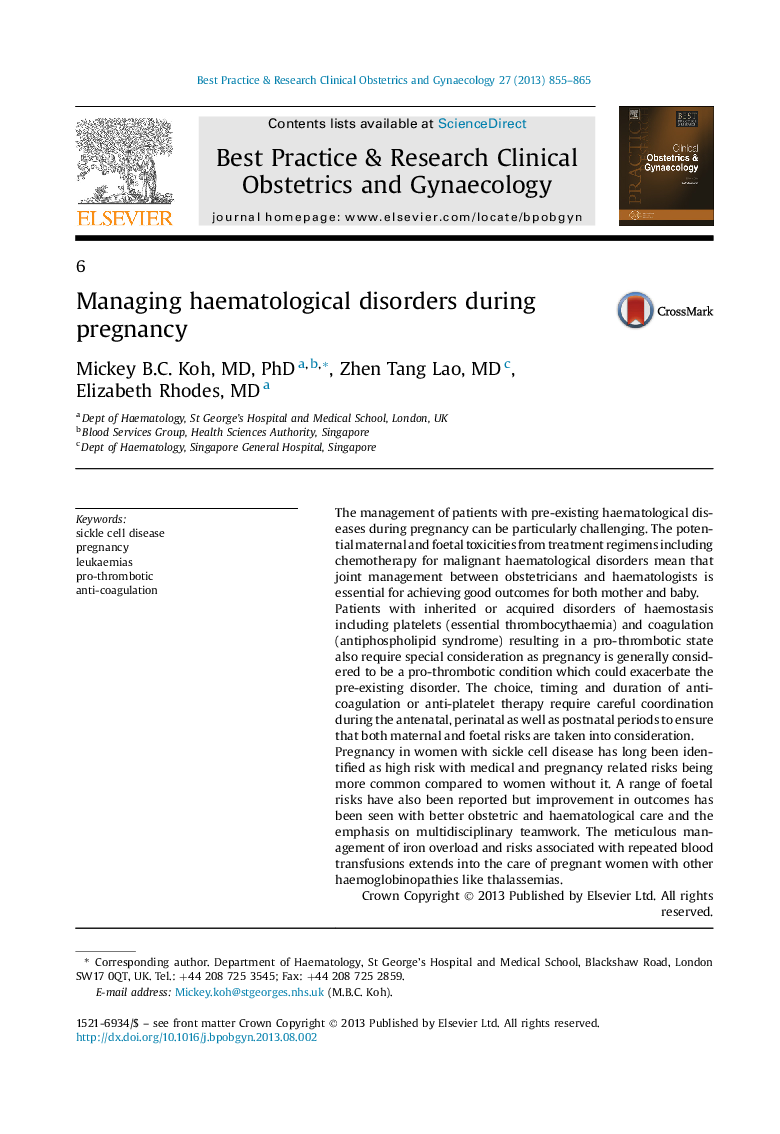| Article ID | Journal | Published Year | Pages | File Type |
|---|---|---|---|---|
| 3907552 | Best Practice & Research Clinical Obstetrics & Gynaecology | 2013 | 11 Pages |
The management of patients with pre-existing haematological diseases during pregnancy can be particularly challenging. The potential maternal and foetal toxicities from treatment regimens including chemotherapy for malignant haematological disorders mean that joint management between obstetricians and haematologists is essential for achieving good outcomes for both mother and baby.Patients with inherited or acquired disorders of haemostasis including platelets (essential thrombocythaemia) and coagulation (antiphospholipid syndrome) resulting in a pro-thrombotic state also require special consideration as pregnancy is generally considered to be a pro-thrombotic condition which could exacerbate the pre-existing disorder. The choice, timing and duration of anticoagulation or anti-platelet therapy require careful coordination during the antenatal, perinatal as well as postnatal periods to ensure that both maternal and foetal risks are taken into consideration.Pregnancy in women with sickle cell disease has long been identified as high risk with medical and pregnancy related risks being more common compared to women without it. A range of foetal risks have also been reported but improvement in outcomes has been seen with better obstetric and haematological care and the emphasis on multidisciplinary teamwork. The meticulous management of iron overload and risks associated with repeated blood transfusions extends into the care of pregnant women with other haemoglobinopathies like thalassemias.
